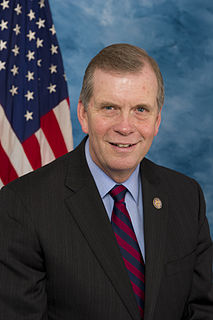A Quote by Mitt Romney
The unemployment rate went down as I was governor of Massachusetts. We were losing jobs every month when I came into the state.
Quote Topics
Related Quotes
Let me tell you the story about Massachusetts under Governor Romney. It did fall to 47th out of 50 in jobs creation. Wages went down when they were going up in the rest of the country. He left his successor with debt and a deficit, and manufacturing jobs left that state at twice the rate as the rest of the country.
I think people have to remember where we were in 2009. We were losing 800,000 jobs a month. We had an unemployment rate in double digits. We had poverty rates soaring. We had kids who were food insecure. Today in 2016, we have a lot less unemployment, a lot less poverty, and a lot fewer kids who are food insecure.
We've seen tremendous progress in many ways under President [Barack] Obama. I mean, if we think about where the economy was when he got in - you know, we were losing more than 700,000 jobs a month. The unemployment rate was skyrocketing. And now it's at under 5 percent, so there is a lot of progress that has happened.
The black unemployment rate has to be twice that of the white rate in the US. If the national unemployment rate were 6.8 percent, everyone would be freaking out. We ought to not take too much solace in the 6.8 percent, but ask ourselves what can we do to bring that down to white rates, which are below 4 percent now. Some of that has to do with education, but that's just part of the story. You find that those unemployment differentials persist across every education level. I think it means pushing back on discrimination and helping people who can't find work get into the job market.
































